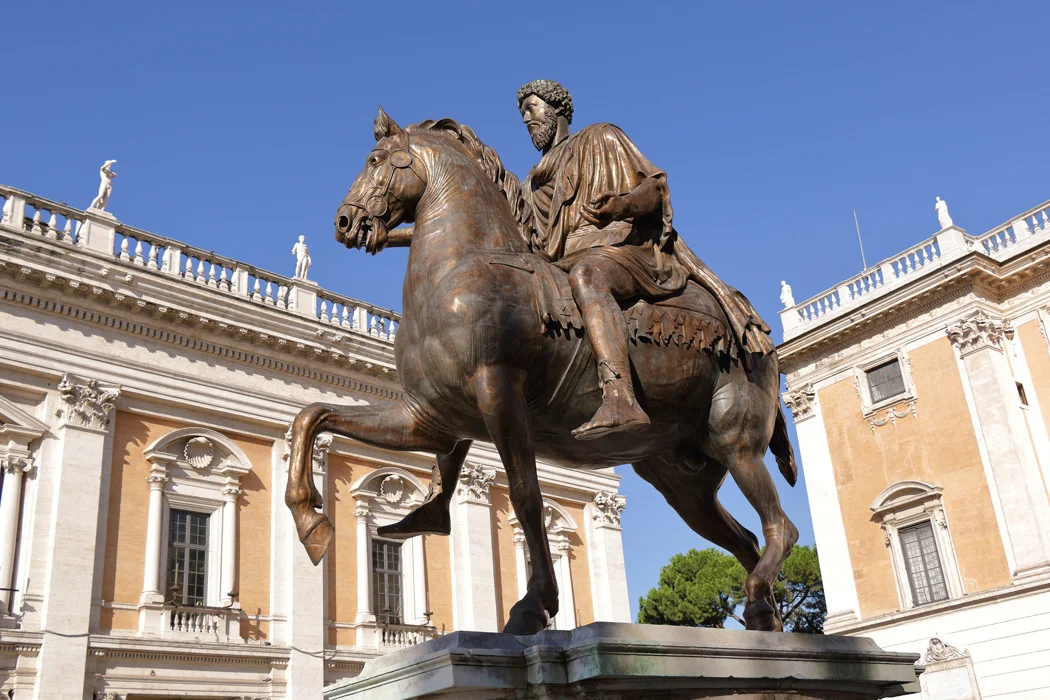What Makes a Good Life #4 - the Stoics
The four virtues

Hey there! It's the fourth article of "What Makes a Good Life" series.
The question "What kind of life should we live?" has been around since ancient times. Across all eras, various philosophers and thinkers have put forward their own ideas about "what constitutes a good life." This shows that the importance of reflection and introspection has been a major focus for thoughtful people throughout history—and it still is today.
In this series, we'll explore what different philosophers from various times, starting from ancient times, have said about the "good life." Each week, I'll introduce the thoughts of a different thinker on the question of what kind of life to live.
In the last letter, we talked about the Epicurean school, and this fourth installment focuses on the Stoic school, which has been frequently covered in Heuton Letters.
A Merchant's Frustration
Around 334 BCE, in a region of Cyprus called Kition, a baby who would later become quite influential is born. His name is Zeno of Citium. You might wonder why his name includes his birthplace. Back then, it was common to prefix the names of famous people like philosophers, writers, and politicians with their hometowns—for example, Thales of Miletus, Pythagoras of Samos, Socrates of Athens. Super cool.
As Zeno grew up, he became a merchant, a path that seemed far removed from philosophy. Then one day, his ship wrecked, causing him to lose all his possessions and leading to days filled with despair.
Luckily, Zeno had a strong mind. Instead of focusing on material wealth, he turned his attention to intellectual pursuits. This shift eventually led him to be known as the founder of the Stoic school.
As I mentioned in the previous letter, Greece was going through the Hellenistic period at that time. After the vast empire Alexander the Great had unified fell apart following his death, chaos ensued. While different cultures were blending, leading to advancements in philosophy, art, and science, individualism was also on the rise.
The two main philosophical schools representing the Hellenistic era were the Epicureans and the Stoics. Although they shared similarities, they also had significant differences.
So, what do Stoic philosophers say constitutes a good life? Here are three key concepts that I believe are most important from this perspective.
1. Virtue
Yes, virtue again! It might sound like a boring word, but seeing it pop up in every philosopher’s mouth shows just how crucial it is, no matter how clichéd it might seem. The Stoics identified four main virtues: wisdom, justice, courage, and temperance.
First, Wisdom: Wisdom is defined as the ability to make the best judgments through rational thinking in any given situation. It means being able to observe things objectively and logically, no matter what they are.
We often react emotionally to events—whether it’s watching the news, stumbling upon gossip on Instagram, or chatting with someone. Instead of taking the time to think things through from multiple angles, we just react based on our feelings.
The Stoics were very wary of this. They advised against making snap judgments based on first impressions. Sure, it’s tedious and challenging, but instead of reacting immediately, we should take a deeper, more multifaceted look at things.
Second, Justice: Like the Epicureans, the Stoics valued a sense of community. However, their approach was a bit different. While the Epicureans emphasized a tight-knit community and tended to live somewhat apart from society, the Stoics focused on civic duty and actually have actively participated in society.
This is one of the reasons I especially like the Stoic school. When you think of “philosophers,” you might imagine them all gathered together, disconnected from reality, talking about blurry ideas. But Stoic philosophers weren’t like that. Many were successful businessmen, politicians, and writers.
One of the most prominent Stoics, Marcus Aurelius—considered one of Rome’s greatest five emperors—once said, "That which is not good for the hive, is not good for the bee." This underscores the importance of considering how each of our actions affects the larger community we belong to.
Third, Courage: For the Stoics, courage isn’t about being fearless. It’s about doing the right thing even when you’re scared. If you believe something is right, you should do it, even if it frightens you.
There are plenty of reasons to hold back—fear of failure, rejection, embarrassment, you name it. But the Stoics advise that if, after rational consideration, you believe something is the right thing to do, you should act on it immediately, regardless of the outcome.
Fourth, Temperance: The Stoics are also widely known for their emphasis on temperance, which is why they’re often associated with asceticism. However, strictly speaking, they weren’t advocating for the suppression of desires. Instead, they promoted rational control over desires and advised against excessive attachment.
A true ascetic wouldn’t even pursue money or fame, but as I mentioned earlier, many Stoic philosophers were successful businessmen and politicians. The Stoics advised pursuing such things without becoming obsessed and letting go without regret when it’s time to move on.
According to the Stoics, we should practice temperance in our daily lives. Whether you’re tempted to be lazy, sleep in, binge-watch YouTube, indulge in late-night snacks, or have just one more drink, the Stoics would tell you to resist those impulses and choose the “right action.”
I believe I strive to live a Stoic life as much as possible, but I still have a lot to be ashamed of.
2. Apatheia
Here comes another fancy term that sounds impressive. Apatheia, as discussed by the Stoic philosophers, essentially means "equanimity" or "calmness." It’s a very important concept in Stoic philosophy and is also what drew me deeply into Stoicism.
Well, life definitely isn’t easy. Most people around us are probably dealing with their own struggles every day. The Stoics advise us not to get overly shaken by the numerous adversities and hardships life throws our way. Getting too worked up only leads to poor outcomes. Instead of reacting emotionally to difficulties, they suggest maintaining rationality and viewing situations as objectively as possible.
At first glance, this might sound like obvious advice, but it has significantly changed my life. When I faced unresolved problems, especially in important ones, I used to think, “Why is my life so fucked up like this? Why can’t anything work out as I want?”—more like an emotional outburst than a thoughtful response.
However, realizing that reacting emotionally doesn’t help improve the situation (which is obvious) led me to focus on "So what should I do now?" whenever negative emotions started to rise. It’s a bigger change than you might think.
“All good and bad things pass,” “Don’t create waves in your heart,” “This too shall pass”—all these sayings seem to align closely with the Stoic concept of apatheia.
3. Fatalism
Lastly, it's fatalism. This is the one part of Stoicism that I found a bit puzzling while studying it. It’s like meeting your ideal type but finding one major flaw.
Fatalism is the philosophical view that all events are determined by natural laws and are inevitable. In other words, everything that happens in the world is already set. It’s somewhat religious, but maybe back then, without advanced science, this idea wasn’t so out of place (maybe).
I found it hard to accept and still can’t fully embrace it. If everything is predetermined, why bother putting in the effort to live peacefully?
Luckily, there's an important concept that accompanies fatalism called free will, which allows for some interpretation. While all events are inevitable, our actions in response to those events are controlled by our free will. Now, I can accept about half of it.
And here comes another key Stoic concept: the dichotomy of control. This is the idea of dividing everything in the world into two categories: (1) things you can control and (2) things you cannot. You should focus only on what you can control because obsessing over what you can’t is pointless.
It’s like an archer who can train and manage themselves every day, but once the bowstring is released, there’s nothing they can do. An archer can control their own actions and thoughts, but they can’t control the wind or other external factors once the arrow is in flight.
From this perspective, it ties into another of my mental anchors, Nietzsche. We’ll cover this later in the series, but one of Nietzsche’s key concepts is Amor Fati (Love of Fate). Simply put, even if you don’t like what’s given to you, if you can’t change it, you should accept and embrace it as it is. If you just sit around blaming the world, nothing will change.
When you think about it, this is similar to the Stoic idea of apatheia.
Wrapping Up..
Jeez, this got too long. Talking about my favorite Stoic philosophy makes me talk too much. Honestly, I wrote so much that it's over twice this length, but I trimmed it down to what I think is essential. Well, your response to this letter is beyond my control!
In conclusion, according to the Stoics, a good life is one where you maintain equanimity while practicing the four virtues: wisdom, justice, courage, and temperance. It’s about distinguishing between what you can control and what you can’t, and focusing only on what you can control. Always keep your calm regarding things you cannot control.
Stoic philosophers taught that there are only two things we can control: our own actions and our thoughts. Everything else is beyond our control, so we shouldn’t obsess over it.
What about you? Let me pick one of the four virtues and make a question out of it: temperance. How are you managing and practicing self-control these days?
See you next week!
